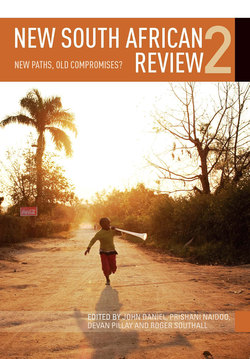Читать книгу New South African Review 2 - Paul Hoffman - Страница 36
На сайте Литреса книга снята с продажи.
INTERNAL DEMOCRACY
ОглавлениеIn a sombre 2009 article, Lotshwao speaks of the ANC as ‘internally undemocratic and highly centralised’ (2009: 912) and fears this could lead to the slow death of democracy in South Africa. The absence of strong interparty competition to provide a check on the dominant party certainly places greater pressure on the ANC’s own internal pluralism to provide a degree of democratic balance, and Lotshwao sees little evidence of this. His argument raises valid concerns but is overstated and requires qualification, given that the ANC has only recently emerged from a process in which it unseated Thabo Mbeki as both party and state president, the rarest of events in Africa. While trends towards centralisation and elitism are real, the aftermath of such important events may seem a singularly inopportune moment to write the ANC off as ‘internally undemocratic’. Our judgement is that such a view of the ANC lacks nuance and subtlety and therefore struggles to explain such a groundbreaking event. It is true that the ANC leadership is still too remote from its membership and from the people at large – Zuma’s more inclusive persona notwithstanding – and parliament still largely serves as a docile instrument of the ANC leadership. The autonomy of ANC MPs is eroded by both the practice of democratic centralism and by the list system of proportional representation, each of which invests enormous power in party elites. Lotshwao argues that when Mbeki was ‘recalled’ in 2008, this resulted from his alleged interference in the prosecution of Jacob Zuma, not from pressure by the ANC membership (2009: 912), although this fails to account for his earlier removal from the ANC presidency which was directly attributable to pressure from the mass membership. Although he argues that the executive is virtually free to act as it wishes (2009: 907) it is at least possible that Polokwane has released a democratic genie from the bottle which the ANC leadership will now struggle to return and Zuma’s room for manoeuvre in the South African political system is greatly constrained when compared to Mugabe’s, even in Zimbabwe’s post-GPA era. Although the ANC has an autocratic character which adversely affects the quality of South African democracy as a whole, it still has a more diverse political base than Zanu PF and a degree of internal pluralism which is wholly absent in Zimbabwe. From a bleaker perspective, however, it could be argued that this plurality is increasingly a plurality of rival factions seeking to access and ultimately plunder the state, rather than a genuine clash of rival ideologies (Suttner, 2008).
